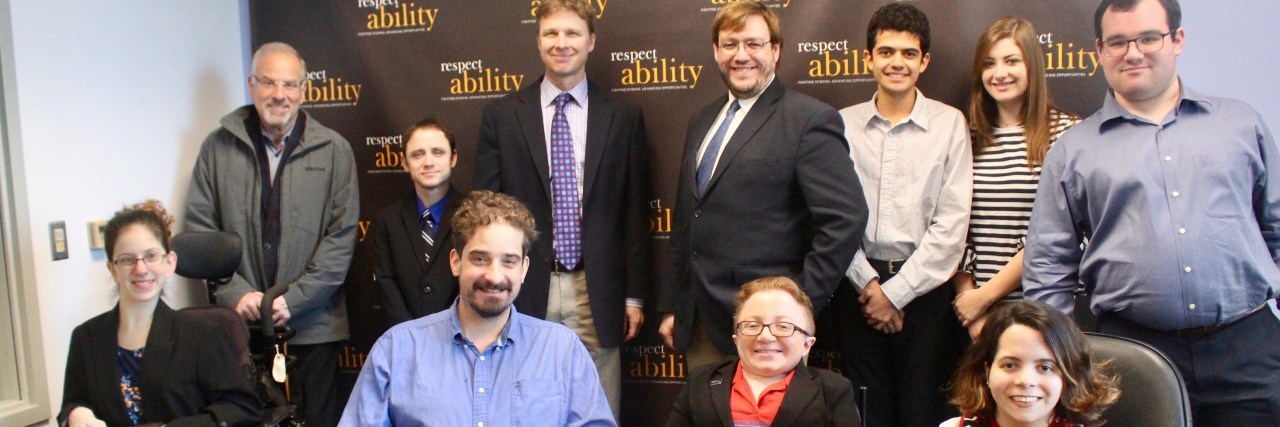Ryan Knight is a Fellow at RespectAbility, a nonprofit organization fighting stigmas and advancing opportunities for people with disabilities.
Derek Shields, President of ForwardWorks Consulting, LLC and disability mentor, spoke to RespectAbility staff and Fellows about the importance of having a mentor to guide you through life and give advice. He began the discussion by providing an overview of the National Disability Mentoring Coalition, a national include initiative of Partners for Youth with Disabilities. The coalition’s mission is to “increase the awareness, quality, and impact of mentoring for individuals with disabilities across the nation.”
Shields explained that, according to MENTOR: The National Mentorship Partnership, one in three youth in America grow up without a mentor. Further, students with disabilities are 50 percent more likely to be absent from school than non-disabled peers, often grow up without employment expectations, and face advancement barriers when in workforce.
“Nearly half of college graduates with disabilities don’t have jobs, or find fulfilling careers,” Shields said. “Low employment expectations and low retention or advancement rates are reasons for breaking barriers – these are opportunities for mentoring to help break those barriers.”
He talked about several types of mentoring including youth-initiated mentoring, critical mentoring, disability, reverse and reciprocal. Shields stressed that at times the disability mentoring program is reported to be important for people with the same or similar disabilities. He also discussed several disability initiatives including the Susan M. Daniels Disability Hall of Fame mentoring recognition program and the NDMC White Paper on Mentoring as a Disability Inclusion Strategy.
Shields began his work in disability services in 1995 in a position supporting the Department of Defense Computer/Electronic Accommodations Program (CAP). CAP provides assistive technology and other accommodations to federal employees with disabilities and wounded Service members. He has since expanded his work with other assistive technology centers, including AT Centers at the Departments of Agriculture, Interior and Transportation. He attended the University of San Francisco in 1998-1999 and earned a Masters in Management and Disability Services. While in the Masters program, he met many educators, influencers and mentors that positively impacted his disability inclusion career and advocacy work, including Mary Lou Breslin, Marie Strahan, Andy Imparato, Laurie Macpherson, Pat Wright and a cohort of 25 other colleagues all working across the nation today to further disability rights and inclusion in their respective fields and communities.
Shields closed his talk by focusing on mentoring resources, including family, leveraging networks and using LinkedIn and Twitter to remain in contact with you organizations and to discover new mentors.
“Take time to connect with people,” Shields added. “You will learn a lot if you do.”

